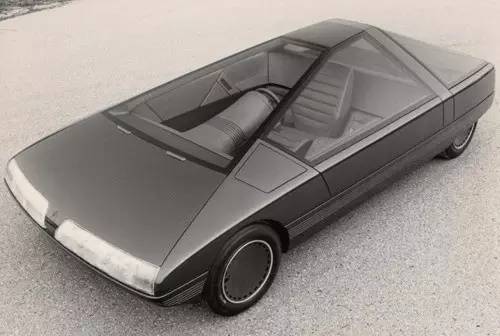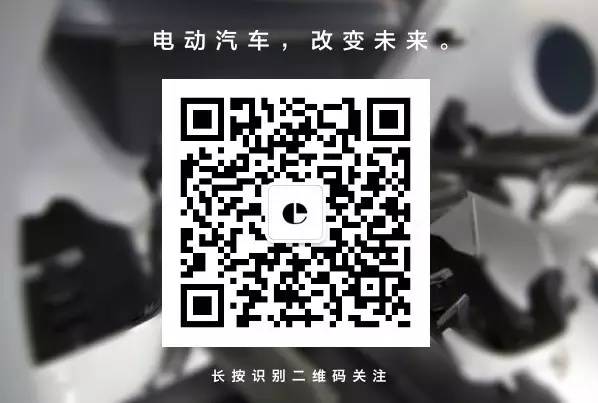
Now that the telecommunications industry has slowed down and demand has gradually stabilized, the automotive industry has naturally become the next target.
—— The Boss Lady
Image source: tumblr

The first trending news this June was that Fu Qiang went to Harmony Futeng, waking up earlier than babies on Children’s Day.
Everyone was still discussing it when LeEco announced another press conference. Together with GAC and Zhongcheng Insurance, they established a joint venture company to create an “automotive Internet ecosystem”.
Flipping through the calendar, the LeSee concept car was only released at the end of April. Then, NIO Automobile circled land in Jiangsu and wanted to “build a high-performance motor and electronic control system production base”…
The automotive industry, which used to be a heavy industry, is collaborating with the Internet, a fashionable trendsetter, more and more frequently. It makes people ponder: why did they come together?
The Boss Lady will give a serious analysis.
The automotive industry is the next target for Internet transformation.
**
**
Internet companies, as capital and knowledge-intensive industries, have the inevitable trend of expanding outward by using strong Internet logic to transform other industries and products. Essentially, the medium of the Internet has already changed the way people around the world live their lives, thus changing the world. Communication devices, entertainment facilities, living facilities, etc. have been transformed, such as smart homes, intelligent appliances, and intelligent entertainment devices. And now that the telecommunications industry has slowed down and demand has gradually stabilized, the automotive industry has naturally become the next target, as it is an excellent field with significant technological content, a wide range of product applications, a complex industry chain, and multiple entry methods to choose from, and so on.This is a common reason, and for China’s internet companies or tech companies, there is a somewhat unique reason, which is that this is currently the “direction that the wind is blowing”. With the strong support of national policies and the layout of industry giants, everyone has worked together to create the current big picture, with their own thoughts and expectations for internet cars that are hard to fathom. It may stem from idealistic passion or utilitarian goals; who knows? But one thing is certain: everyone has plenty of money and vision.
Internet companies “get on board”, while car manufacturers “get electrified”?

Take a look at the main entry points for internet companies to layout in the automotive industry: electric vehicles, intelligent vehicles, and autonomous or unmanned vehicles. Except for Baidu, which chose unmanned driving, other companies have basically chosen the direction of intelligence and electrification.
Alibaba joined hands with SAIC to develop auto intelligent systems, while Tencent partnered with Harmony Auto and Foxconn to form Harmony Futeng. After digging up a large number of senior executives from luxury German electric car projects, it also poached Fu Qiang from Volvo. It is said that Liuyan will also join, and its automotive layout is quite clear, including Future Mobility, which positions itself as a luxury electric car market leader, and Aiways, which is focused on the economical electric car market. Looking at the “second generation of the rich” on the internet car production list, such as LeEco, Chehejia, NIO and others, they have all chosen the direction of intelligence + electrification.
The basic feature of the internet industry, or technology companies, is to realize the flow of information. The product logic of the internet industry, whether hardware or software, is basically focused on the generation, flow, and exchange of information, connecting people to people. After controlling the mobile end, the important but currently untouched part of the target consumer’s living scenario in the imagination of internet industries is the in-car scenario (home and work scenarios are already controlled by smart home appliances and various smart devices). Therefore, it is natural for internet companies to take a foothold in the automotive industry.
To be specific about how to control the in-car scenario, it extends to more diverse topics, but the most important thing is the in-car intelligent system (so most electric car manufacturers claim to carry excellent intelligent systems, because in reality, intelligent systems are where the internet industry can possibly expand its power). Intelligent vehicles, to put it simply, require differentiating between developing systems or manufacturing cars. The smarter choice is to develop systems, such as Alibaba’s, while brave companies choose to make cars, such as Harmony Futeng, LeEco, and others.From the perspective of industry development prospects, the internet industry has attracted a large amount of capital and it is necessary to find a suitable outlet. The enthusiasm of the capital market requires the continuous injection of imagination and passion, and the automotive industry is a good point of entry. As a branch of the manufacturing industry, which is the foundation of the national economy, the environmental protection and intelligence demands of automotive products are becoming increasingly strong. These are the inherent demands of the automotive industry and need to be urgently addressed. The dreamers from these internet or technology companies are the most likely to meet these demands. The intelligent and technological development of transportation is inherently linked to the technological development of the internet industry.
“Ultimately, it still comes down to the fact that we all want to climb the ladder of success with a strong tailwind.”

Last week, GAC Group (Guangzhou Automobile Industry Group Co.), LeEco, and Zhongcheng Insurance announced the establishment of their joint venture, Dayang Technology Co., Ltd. The three parties hold a stake of 45%, 40%, and 15% respectively. According to the news release, it is said that the joint venture aims to build a car-sharing and experience platform, constructing an open and shared ecosystem for the automotive Internet.
The three-party business composition revealed in the news release shows that LeEco seems to be more inclined to play the role of an online traffic provider. It is unclear how much this matter is related to LeEco’s automotive branch. However, LeEco is now considered as an OEM partner, and its luxury team and high-end vision seem to have a more reliable foothold. LeEco’s two-pronged approach is also sound, as there is always a first-come, first-served principle in the market, and the first mover always gets more “preferential treatment”.
Yes, another reason why internet companies are entering the automotive industry is the need to seize a strategic position, which means occupying important positions supported by political correctness and policy. In any case, there are always those that arrive sooner or later, and the first to enter always gets more “preferential treatment”.

The transformation demands of the automotive industry and the entrepreneurial impulses of internet companies are no match for favorable factors of time, place and people. The current trend of internet companies entering the automotive industry is undoubtedly related to the “Internet Plus Action Plan” proposed at the 12th National People’s Congress. The plan clearly states that it aims to promote the integration of the internet with the manufacturing industry, among others.
On the other hand, in April 2015, four ministries jointly issued a subsidy plan for electric vehicles, which injected up to 200 billion yuan into the automotive industry. The smart internet elites perfectly integrated the government’s intentions and actions into the automotive industry, thus creating the trend of producing intelligent electric vehicles. Regardless of the end result, going with the flow is always the right thing to do. If you accidentally make money, that’s the best, but if you can’t, making some noise is also good. When the strong wind blows, who knows if the pig can fly?Is internet-based car manufacturing viable?
Regardless of what these trendsetters may think, the boss believes that a “car-making” plan without a host factory would always be a castle in the air. First of all, from a technical point of view, the overall manufacturing process is complex, involving numerous technical processes and component parts, and automobile sales are even more complicated. It is almost impossible to find another consumer product that can be compared with cars in terms of complexity, because the requirement for continuous after-sales service makes automobile sales exceptionally complicated. Therefore, apart from a production line and a stable network of supporting service providers, a reliable sales service system is also required, and none of these tasks are easy.
Backing off for a moment, even if any giant manages to gather the “skills”, it may not necessarily be able to summon the dragon, because Chinese car consumers are extremely spoiled, as a matter of fact!

The actual fact is that there are already enough brands and products on the market, and there is hardly a need for new brands. DS is having a very hard time these days, and the same is true for Guezz. So Lady Boss is not very optimistic about BAW. For new brands entering the market and launching high-end products, it is going to be like being trapped in a squeeze between the older established brands like ABB, Cadillac, Lexus, Jaguar, etc. DS serves as a good example of this. The ones targeting the low-end market may initially do somewhat better (but how much advantage do new entrants really have in reducing costs compared to established car companies?), but it will ultimately still face issues of sustainable profitability.
Therefore, the reliable way to resolve the fundamental problem of selling cars is to team up with established car manufacturers to create future cars, utilizing the endorsement of both sides’ existing brands.
Of course, all of the above except Tesla. Pioneering truly groundbreaking products that previously carry advanced producing qualities enable products to quickly spread. Then, why don’t I think that LeTv and companies like it can create breakthrough products? Well, it’s because I don’t have much confidence in the commercial sentimentality and moral standards of Chinese enterprises.
Of course, I hope that reality will prove me wrong. The Internet Queen tells you what the future car will look like in 26 pages of PPT
The Internet Queen tells you what the future car will look like in 26 pages of PPT
Five Key Issues Affecting Tesla
What is Apple Researching about Electric Vehicle Charging?
The Apple Car is Really Coming! 35 Design Drawings and Videos have been Exposed!


Super cool electric car news
Looking for electric car enthusiasts
Contact Daji on WeChat (WeChat ID: iidaji) for more details.


This article is a translation by ChatGPT of a Chinese report from 42HOW. If you have any questions about it, please email bd@42how.com.
